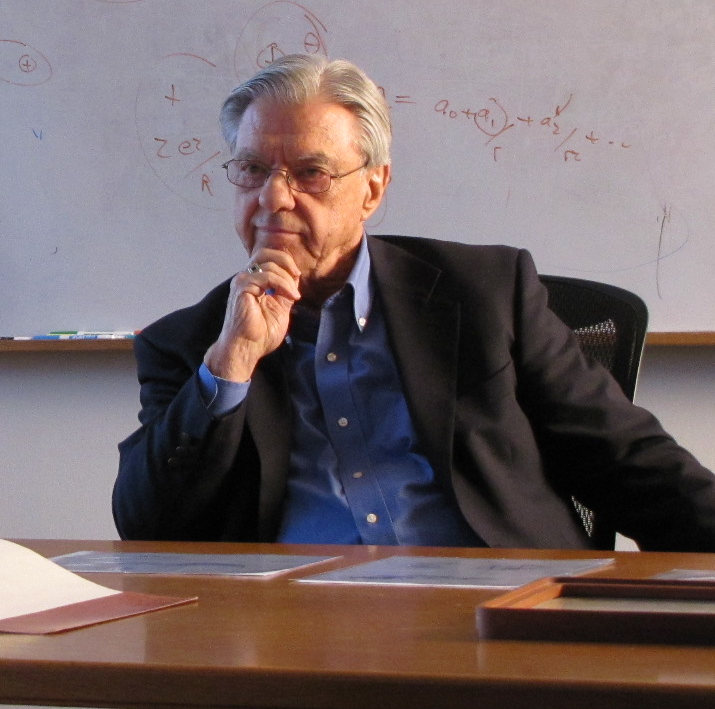
A graduate of Stanford University in 1967, Dr. Harold E. “Hal” Puthoff’s professional background spans more than four decades of research at General Electric, Sperry, the National Security Agency, Stanford University, SRI International, and, since 1985, as Director of the Institute for Advanced Studies at Austin. He has published numerous papers on electron-beam devices, lasers and quantum zero-point-energy effects, has patents issued in the laser, communications, and energy fields, and is co-author of a textbook Fundamentals of Quantum Electronics (Wiley, 1969). His awards and honors include a DoD Certificate of Commendation for Outstanding Performance.
An experiment Puthoff conducted with Ingo Swann in June, 1972 attracted the interest of the Central Intelligence Agency and led to Puthoff’s founding of SRI-International’s human consciousness research program. Subsequently joined by Russell Targ, Puthoff created and lead the program, which experimented with many varieties of ESP and psychokinesis, focusing particularly on the ESP-based skill known as remote viewing. Under contract to the CIA and later the Defense Department, Puthoff and his team tested the parameters of the remote viewing phenomenon. At the direction of the US Army he and Swann created a novel training program to teach US military personnel remote viewing skills they then used to conduct espionage missions against the Soviet Union and other foreign threats. In 1985 Puthoff left the remote viewing program to become director of the Institute for Advanced Studies at Austin.
Dr. Puthoff regularly serves various corporations, government agencies, the Executive Branch and Congress as consultant on leading-edge technologies and future technology trends. He is or has been a member and officer of several professional and scientific organizations; is listed in American Men and Women of Science, Who’s Who in Science and Engineering, and Who’s Who in the World; and has been designated a Fetzer Fellow.
His present research interests range from theoretical studies concerning gravitation, inertia, cosmology and energy research, to laboratory studies of innovative approaches to energy generation and space propulsion.
(See more photos of Hal here!)